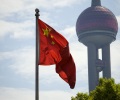In China, global companies are having a hard time as domestic brands steal the spotlight

For many companies, business in China has changed over the long term as the fragile economy and sluggish consumer demand force executives to rethink their brand strategies and compete with home-grown rivals.
From automaker BMW to Uniqlo owner Fast Retailing 9983 and furniture giant IKEA, global companies have soured on China’s outlook, with some pulling earnings guidance and others retreating to a new “normalization.”
The grim guidance illustrates how the Chinese market, clouded by trade wars, fierce price competition, rising nationalism and cost-conscious consumers, is a major drag for many companies already squeezed by higher US tariffs.
“We need to find smarter ways of producing so that prices become more competitive, and we need to learn to be more relevant for the Chinese market,” said Jon Abrahamsson Ring, CEO of IKEA franchise owner Inter IKEA, adding that consumer trust in China remains a challenge.
As a result of the US price war and tariffs, foreign car manufacturers in China are among the most affected.
Along with BMW, Mercedes-Benz MBG and Porsche P911 reported declining sales in the world’s largest car market amid intense competition.
Underscoring the importance for companies to rethink their business in China, Nestle NESN, the world’s largest packaged food company, said it needs to focus more on driving consumer demand.
ASML ASML, the world’s largest supplier of computer chip-making equipment, warned Chinese demand would fall “significantly” next year and described the decline in sales in China as “normalization.”
Shifting shopping patterns are also hurting global retailers, with thrifty consumers flocking to online platforms such as Alibaba’s BABA Taobao to get discounted prices.
At Fast Retailing, owner of Uniqlo, sales and profits fell in China, its biggest market with 900 stores, even as its revenue in North America rose 24%.
Nike NKE reported a sales decline in the fifth quarter in the Greater China market, amid stiff competition from domestic brands including Anta 2020 and Li Ning 2331.
The company recently sent US basketball stars LeBron James and Ja Morant to China to lure consumers.
In the alcohol sector, TWE Australia’s Treasury Wine Estates withdrew its earnings guidance for 2026 due to weak sales of its flagship Penfolds wines in China, citing changing alcohol drinking habits and reduced large-scale dining.
French alcoholic drinks maker Pernod Ricard RI said sales in China plunged 27%.
RARE SPOT OF BRIGHT
Some companies appear to be holding out, especially in China’s luxury goods space, which accounts for about a third of global sales.
LVMH MC reported better-than-expected third-quarter sales supported by improved Chinese demand, saying shoppers responded well to new store experiences, such as Louis Vuitton’s ship-shaped boutique in Shanghai.
“What we see is every time we bring a new retail initiative or innovation or disruption initiative, it immediately creates… interest and excitement and consumers respond very quickly,” said LVMH CFO Cecile Cabanis.
Persistent deflationary pressures in China support the need to take further policy steps as weak demand and trade tensions weigh on the $19 trillion economy.
Data on China’s GDP growth and retail sales on Monday as well as a series of earnings from global companies will give investors more insight into the health of the world’s second-largest economy.
HOME-GROWN STARS
A growing challenge for global brands is the rapid rise of cheaper domestic alternatives for almost everything, from cars to coffee and fashion.
Chinese brands accounted for 69% of total car sales in China in the first eight months of this year, compared to 38% in 2020.
Some well-known names include Luckin Coffee, which competes with Starbucks SBUX, ice cream and drinks chain Mixue 2097, which is a headache for Haagen-Dazs with its cheaper offerings, and beauty and cosmetics brands Proya and Chando, which have snatched market share from global players.
In general, people pay 9.9 yuan ($1.4) for a latte from Luckin, less than a third of the price at Starbucks.
The market share of Chinese cosmetics brands is expected to surpass foreign brands for the first time in 2025, reaching 50.4%, according to Frost & Sullivan.
Urban Revivo, known as Zara’s rival in China, is one of a group of domestic companies looking to expand abroad.
Another star is jewelery retailer Laopu Gold 6181, often referred to as the “Hermes of gold”, whose shares have soared 214% this year. This product is heavily inspired by Chinese cultural heritage and has proven to be popular with consumers.
Frost & Sullivan said 77.3% of Laopu customers also shop at Louis Vuitton, Hermès, Cartier, Bulgari and Tiffany & Co.
Nestle, which said it was too focused on distribution in China and not enough on consumers, is now changing its strategy.
“What you’re seeing in China is us improving it and really consolidating our distribution and making it more efficient, while we build consumer demand,” said CFO Anna Manz.
Source: Reuters
